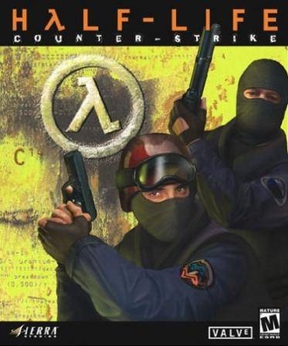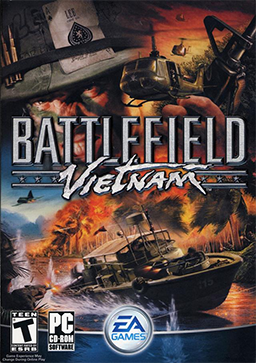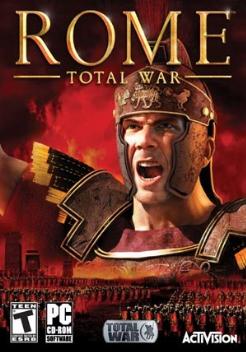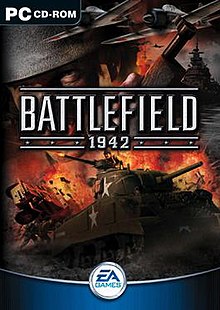
Counter-Strike is a tactical first-person shooter game developed by Valve. It was initially developed and released as a Half-Life modification by Minh "Gooseman" Le and Jess Cliffe in 1999, before Le and Cliffe were hired and the game's intellectual property acquired. Counter-Strike was released by Valve for Microsoft Windows in November 2000, and is the first installment in the Counter-Strike series. Several remakes and ports were released on Xbox, as well as OS X and Linux.

Deus Ex is a 2000 action role-playing game developed by Ion Storm and published by Eidos Interactive. Set in a cyberpunk-themed dystopian world in the year 2052, the game follows JC Denton, an agent of the fictional agency United Nations Anti-Terrorist Coalition (UNATCO), who is given superhuman abilities by nanotechnology, as he sets out to combat hostile forces in a world ravaged by inequality and a deadly plague. His missions entangle him in a conspiracy that brings him into conflict with the Triads, Majestic 12, and the Illuminati.

Quake III Arena is a 1999 multiplayer-focused first-person shooter developed by id Software. The third installment of the Quake series, Arena differs from previous games by excluding a story-based single-player mode and focusing primarily on multiplayer gameplay. The single-player mode is played against computer-controlled bots. It features music composed by Sonic Mayhem and Front Line Assembly founder Bill Leeb.

Quake II is a 1997 first-person shooter video game developed by id Software and published by Activision. It is the second installment of the Quake series, following Quake. The game's storyline is continued in its expansions, including one tying in Quake II and the first game, and Quake 4.
Video game modding is the process of alteration by players or fans of one or more aspects of a video game, such as how it looks or behaves, and is a sub-discipline of general modding. Mods may range from small changes and tweaks to complete overhauls, and can extend the replay value and interest of the game.

Day of Defeat is a team-based multiplayer first-person shooter video game set in the European theatre of World War II on the Western front. Originally a modification of the 1998 game Half-Life, the rights of the modification were purchased by Valve and released as a full retail title in 2003.

Unreal Tournament is a first-person arena shooter video game developed by Epic Games and Digital Extremes. The second installment in the Unreal series, it was first published by GT Interactive in 1999 for Windows, and later released on the PlayStation 2 and Dreamcast by Infogrames in 2000 and 2001, respectively. Players compete in a series of matches of various types, with the general aim of out-killing opponents. The PC and Dreamcast versions support multiplayer online or over a local area network. Free expansion packs were released, some of which were bundled with a 2000 re-release: Unreal Tournament: Game of the Year Edition.

Unreal Tournament 2003 is a first-person arena shooter video game developed by Epic Games and Digital Extremes, and published by Infogrames under the Atari brand name. The game is part of the Unreal franchise, and is a sequel to 1999's Unreal Tournament. Like its predecessor, the game is designed mainly for multiplayer gaming.

Unreal Tournament 2004 is a first-person arena shooter video game developed by Epic Games and Digital Extremes. Part of the Unreal franchise, it is the third game in the Unreal Tournament series and the updated version of Unreal Tournament 2003.

Battlefield Vietnam is a 2004 first-person shooter video game developed by Digital Illusions Canada and published by Electronic Arts for Microsoft Windows. It is the second installment of the Battlefield franchise, coming after Battlefield 1942. Battlefield Vietnam takes place during the Vietnam War and features a large variety of maps based on historical settings, such as the Ho Chi Minh Trail, Battle of Huế, Ia Drang Valley, Operation Flaming Dart, the Battle of Khe Sanh and Fall of Saigon. On 15 March 2005, EA re-released the game as Battlefield Vietnam: Redux, which includes new vehicles, maps and an EA-produced World War II mod, based on the previous installment Battlefield 1942.

Dungeon Siege is an action role-playing game developed by Gas Powered Games and published by Microsoft in April 2002, for Microsoft Windows, and the following year by Destineer for Mac OS X. Set in the pseudo-medieval kingdom of Ehb, the high fantasy game follows a young farmer and her companions as they journey to defeat an invading force. Initially only seeking to warn the nearby town of the invasion of a race of creatures named the Krug, the farmer and the companions that join her along the way are soon swept up in finding a way to defeat another race called the Seck, resurgent after being trapped for 300 years. Unlike other role-playing video games of the time, the world of Dungeon Siege does not have levels but is a single, continuous area without loading screens that the player journeys through, fighting hordes of enemies. Also, rather than setting character classes and manually controlling all of the characters in the group, the player controls their overall tactics and weapons and magic usage, which direct their character growth.

Medieval: Total War is a turn-based strategy and real-time tactics computer game developed by Creative Assembly and published by Activision. Set in the Middle Ages, it is the second game in the Total War series, following on from the 2000 title Shogun: Total War. Originally announced in August 2001, the game was released in North America on 19 August 2002 and in Europe on 30 August for Microsoft Windows.

Rome: Total War is a strategy video game developed by The Creative Assembly and originally published by Activision; its publishing rights have since passed to Sega. The game was released for Microsoft Windows in 2004. The macOS version was released on February 5, 2010, by Feral Interactive, who also released the iPad version on November 10, 2016, the iPhone version on August 23, 2018, and the Android version on December 19, 2018. The game is the third title in The Creative Assembly's Total War series, following Shogun: Total War, and Medieval: Total War.

Battlefield 2 is a first-person shooter video game developed by Digital Illusions CE and published by Electronic Arts for Microsoft Windows. It was released in June 2005 as the third game in the Battlefield franchise.

Battlefield 2142 is a 2006 first-person shooter video game developed by DICE and published by Electronic Arts. It is the fourth game in the Battlefield series. Battlefield 2142 is set in 2142, depicting a war known as "The Cold War of the 22nd Century", in which two military superpowers – the European Union (EU) and Pan Asian Coalition (PAC) – battle for the remaining unfrozen land during a new ice age.

Battlefield 1942: Secret Weapons of WWII is the second of two expansions to the World War II first-person shooter computer game Battlefield 1942. It was released for Microsoft Windows on 4 September 2003 in North America and 5 September 2003 in Europe. It was also released for Mac OS X on 25 October 2004.
Beyond the Red Line was a total conversion for the game FreeSpace 2, based on the reimagined TV show Battlestar Galactica. It allows players to fly into combat as either a Colonial Viper pilot or a Cylon raider.

Mechwarrior: Living Legends is a free, fan-created multiplayer-only game based in the BattleTech universe - originally a total-conversion mod for Crysis, it's since become stand-alone - running on Crysis Wars, and using CryEngine 2 as its engine. It's one of the few mods based on the BattleTech universe to have been sanctioned by Microsoft—who currently owns the rights to the Mechwarrior video-game franchise—and additionally received pre-SDK support and sanctioning directly from Crytek, producers of the games' engine. On December 26, 2009, an open beta was released via BitTorrent and other distribution methods. Because the project changes the play-style and feel of the game it is originally based on so completely as to be unrecognizable in comparison, it is billed as a "full-conversion" mod, since little to no trace of the original game's art or play-style exists any longer within MW:LL. It was created by American developer Wandering Samurai Studios.

Red Orchestra 2: Heroes of Stalingrad and Rising Storm GOTY, now known as Rising Storm/Red Orchestra 2 GOTY on Steam, is a tactical multiplayer first-person shooter video game set during World War II, developed and published by Tripwire Interactive. It is a sequel to Red Orchestra: Ostfront 41-45. The title focuses heavily on the Battle of Stalingrad and the Pacific Theater. The game was released in September 2011. The game is currently a Windows exclusive and contains many new features compared to the original, including a new first-person cover system, which can also be combined with blind firing, first person collision detection, Commander role and abilities as well as an entirely new system of statistics tracking and player levelling. Maps are much bigger and had immediate 64-player support.


















